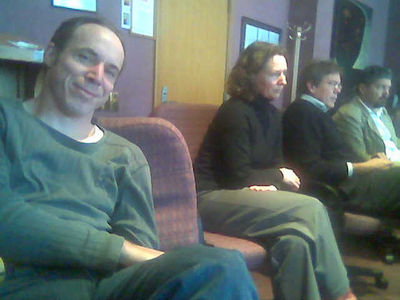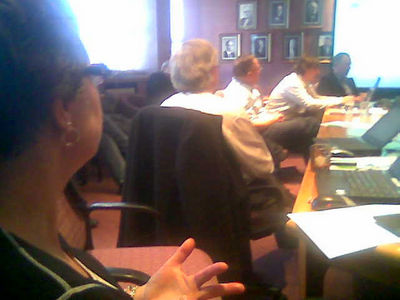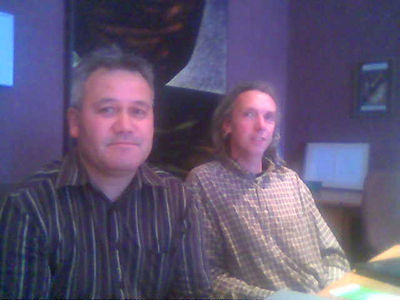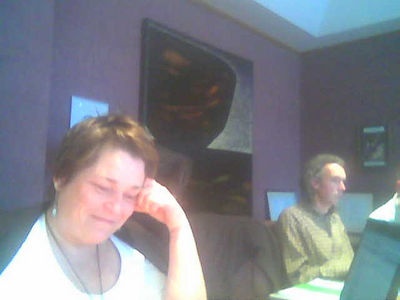Proposed action plan
From WikiEducator
Register and join us at the National Library for Heywire8 - Wellington, 4 August 2009
Concerns / Issues / Questions
- How do we know the OER approach is effective for our learners?
- Keeping up with technology advances
- Are OER development and delivery processes different from traditional approaches?
- Changes in learning approaches associated with OER?
- Does OER assume pedagogical paradigm?
- OER and practices (OERP)?
- Quality is contextual
- The potential of OER to improve quality
- How do we convince educators of the value proposition of OER?
- How do we recognise teaching for promotion -- Is there a link between PBRF and OER development?
- AKO - OER?
- Peer review approach and scalability challenges (doesn't scale well)
- Peer review is important for buy-in
- Notion of centralising on WikiEducator is problematic - networked distribution on the Internet is the way to go
- In OER is process more important than product?
- In OER do you develop the "generic" or do you start with the "context" -- what's the most cost effective way?
- Network neutrality!! Open content should always be delivered through open networks.
- Should infrastructure be designed for production or consumption?
- Branding -- is corporate better?
- More agressive approavhes to managing open content?
- Constraints and restrictions in hosting content?
- Where is the school sector?
- Community kudos is a powerful motivator for OER authors? (eg featured resource on Wikibooks)
- Time and costs to source high quality images under free content license.
- "Access to learning is free -- certification costs."
What should we do and how will we do it?
- Share narratives of the process - Richard's narratives, Warrington School, Digital content strategy narrative - Danny?, Lecturer stories, External stories (COL), PR, advocacy stories
- Get on the agenda of Regular forums -- TANZ (Robin), ITPNZ Bron, Uni eLearning Directors Group (Bill/Gordon), CC NZ, Wayne to speak about Heywire8 @ eFest, contact participants for inputs, Phil Kerr talking @ eFest, Teachers conferences like ULearn.
- Work with unions -- OER as model around IP?
- WikiEducator workshops - Find institutions around NZ to host/support more L4C type workshops around NZ
- Channel video content - YouTube, BlipTV etc --
- HERDSA -- start feeding OERs into Herdsa (Stan)
- How/should we consider quality assurance standards? (It could be that the true open process of OER improves quality and that our older notions get questioned)
- Andrew Higgins project -- is the Otago story on IP capture (Dan - link to Otago IP case study)
- Encourage explicit peer review
- Consider a software development model of iterative improvements
- Or and/or consider a networked review process where end users provide feedback either through just use, or through ratings and other expressions.
- Help teachers become self reliant with always updated resources (the photocopier 15 minutes before class analogy)
- Coordinate a national strategy -- sector wide, national library, institutions, MOE .... particularly on the question of providing local storage (national archive?)
- Show the private sector new business models that do not threaten.
- What we do should be inclusive of all sectors and levels.
- We must develop appropriate and relevant quality processes.
- We should bring the publishers on board.
- Involve professional registering bodies.
- "Engage practitioner networks" - Stanley Frielick
- Investigate economic models for sustainability.
- Knowledge sharing/ case studies on OER models, viable approaches etc.
- OLPC network, Martin Catalyst, David Leeming, funding ....
- Develop a proposal for contestable earmarked funding for OERs (see British Columbia experience, UNESCO OER initiative, William and Flora Hewlett foundation)
- Find ways to diversify revenue streams (eg OERs can free up time for other activities).
- Talk with the sector about the mechanims for OER sharing -- eg ITPNZ.
- Talk with TEC and project leaders whether we apply CC-BY or CC-BY-SA retrospectively to relevant eCDF projects.
- Engagement, dialogue with practitioners and students --- talk to student associations, feedback from students, surveys
- Workshops on copyright -- help educators feel more comfortable.
- Discussions on nuances of open content licences.




